Arrival in Geneva
I keep sitting here trying (failing) to write a blog post. And the problem is that every time I start, I sound like someone who writes blog posts. That’s not what I want.
But, my time in Europe has begun and so I must begin to document it. The group flight, with me and most of the other students on it, departed from Newark, NJ on Sunday night and arrived Monday morning in Geneva, Switzerland. I sat next to someone who at first I believed to be on the same study abroad program, but after talking for a couple minutes it became clear that he knew a lot more about science than I did. After revealing to me that he has an actual job at CERN, he said, “It’s always fun to see how many physicists are on this flight,” which I appreciated.
Once we landed and everyone was officially jet-lagged, we collected our luggage. I was the last one to get all of my things, because apparently if your luggage is shaped like a guitar, they put it in a separate pile of irregular shaped bags and they do not tell you they are doing so. But I did find it and we departed to our new home: Rue Muzy.
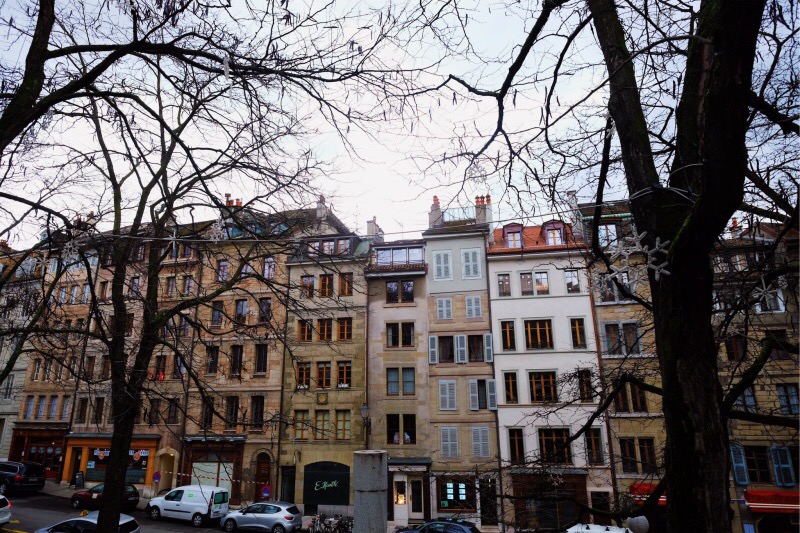
They don’t waste any space in Geneva (or Genève, if you’re fancy). And wow is it clean.
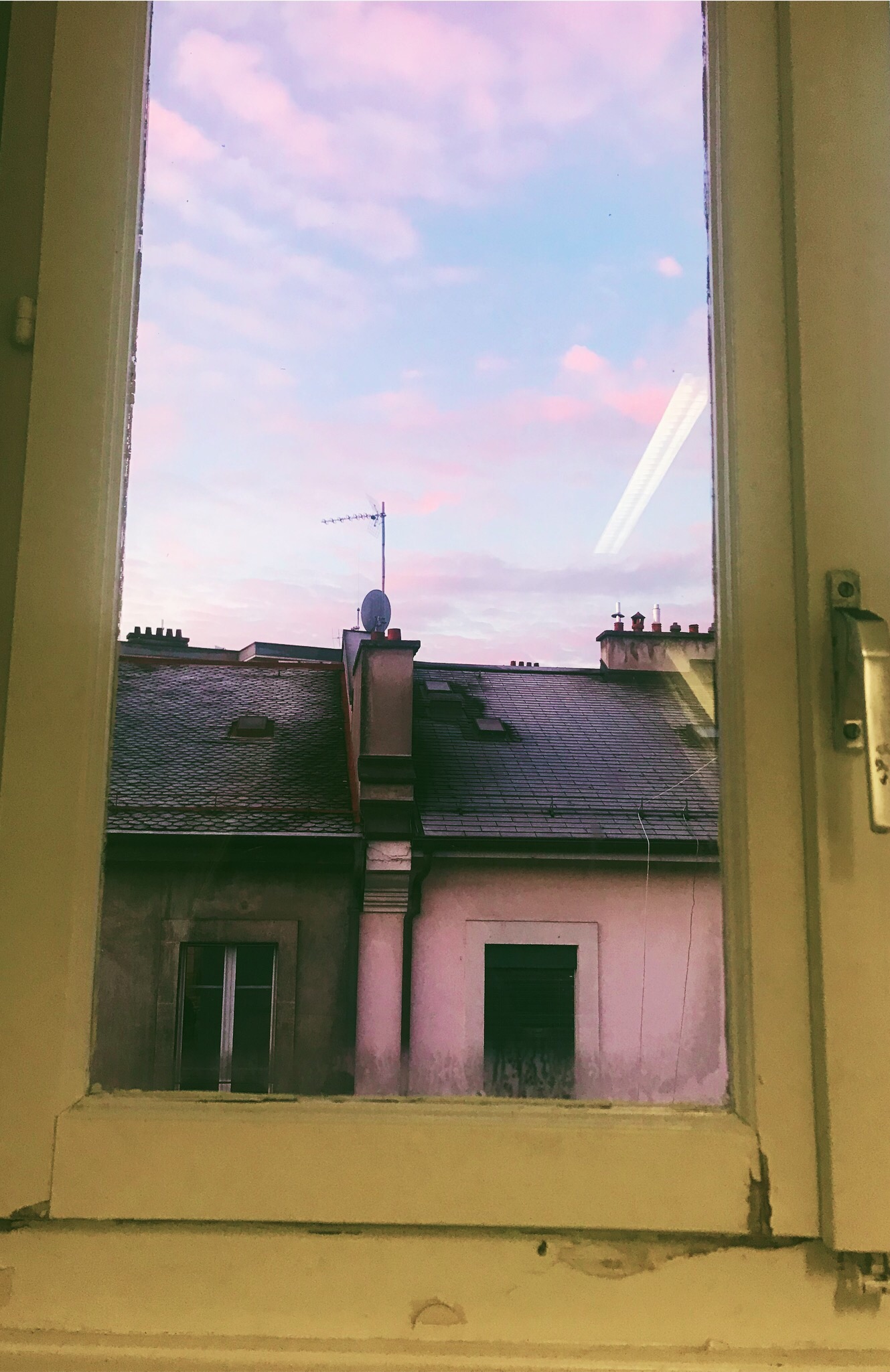
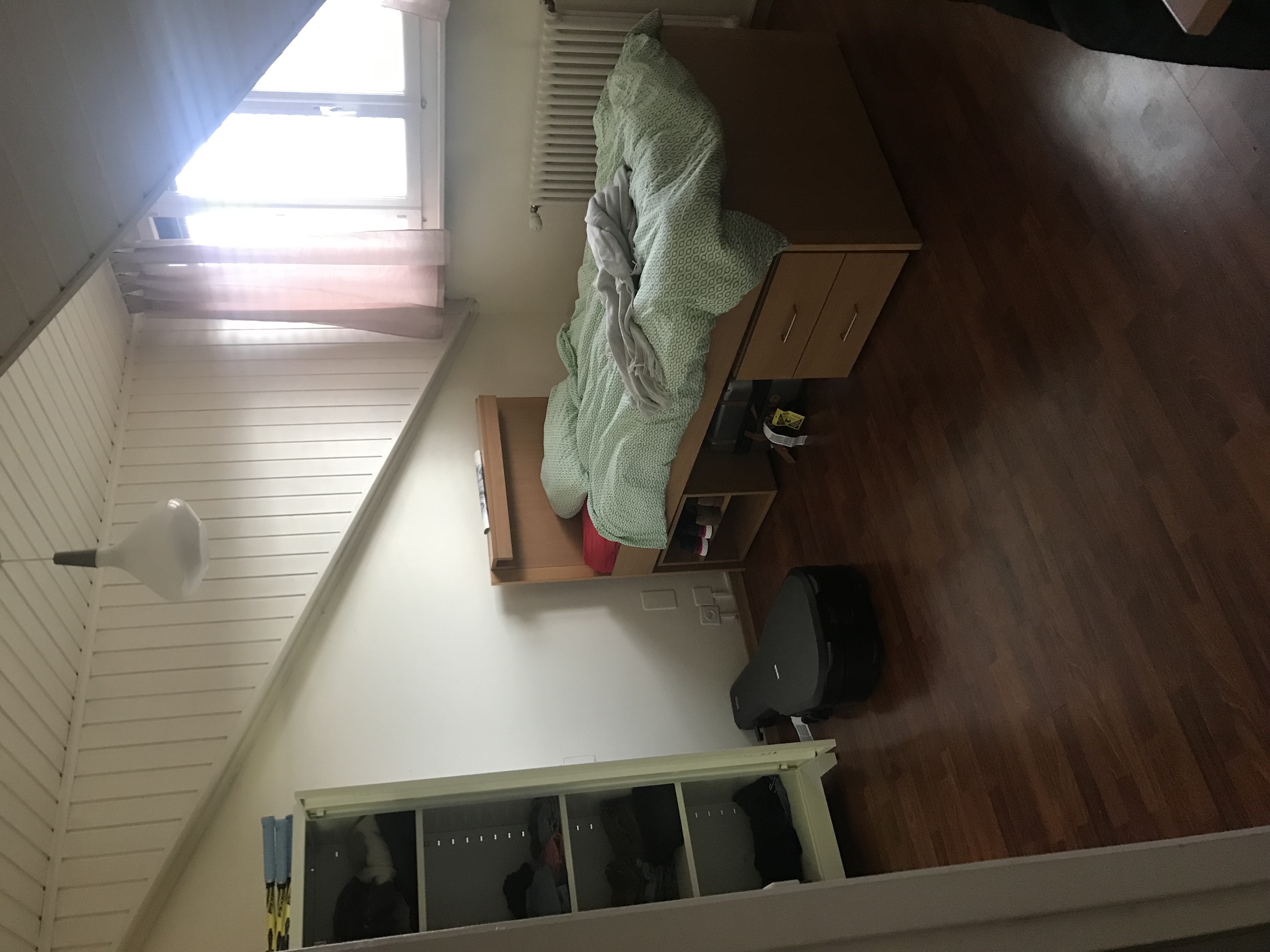
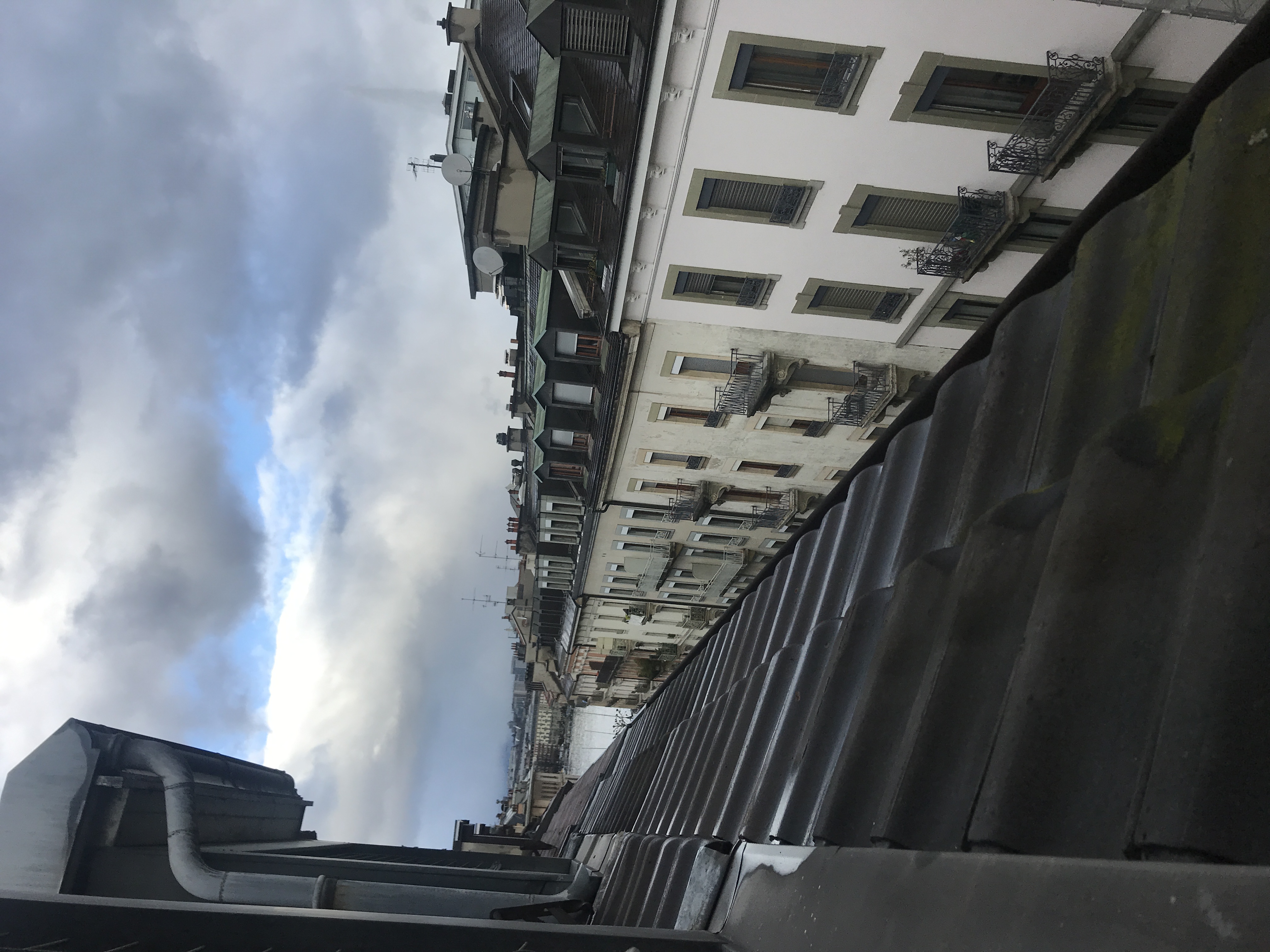
The residence is an old, narrow building located downtown on Rue Muzy, less than one block away from lake Geneva. At first, we didn’t really know what to call the building, since it was not a house, not apartments, and not truly dorms either. But from what I can tell it’s an amazing spot: central, beautiful, and safe. It’s right across from the Jet d’Eau, which is the symbol of the city. It’s a fountain in the middle of the lake that spits water up hundreds of feet. Besides its obvious glory, it makes getting lost very difficult. We spent all of the first couple of days orienting ourselves with the city, including the public transit, which is outstanding.
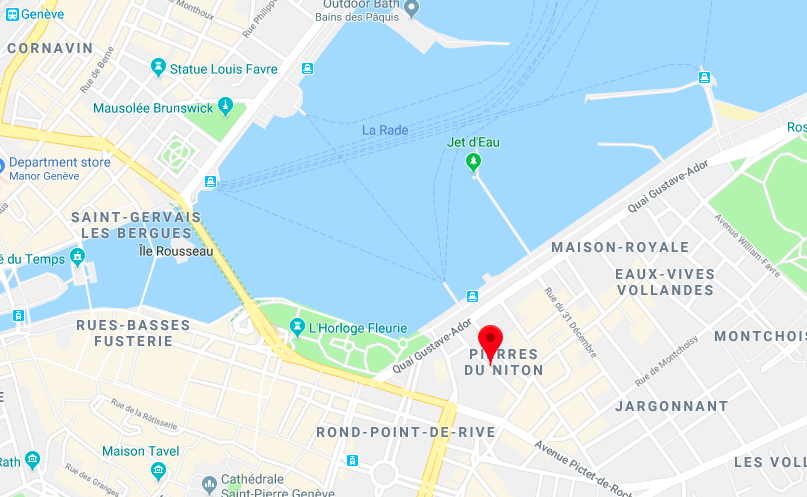
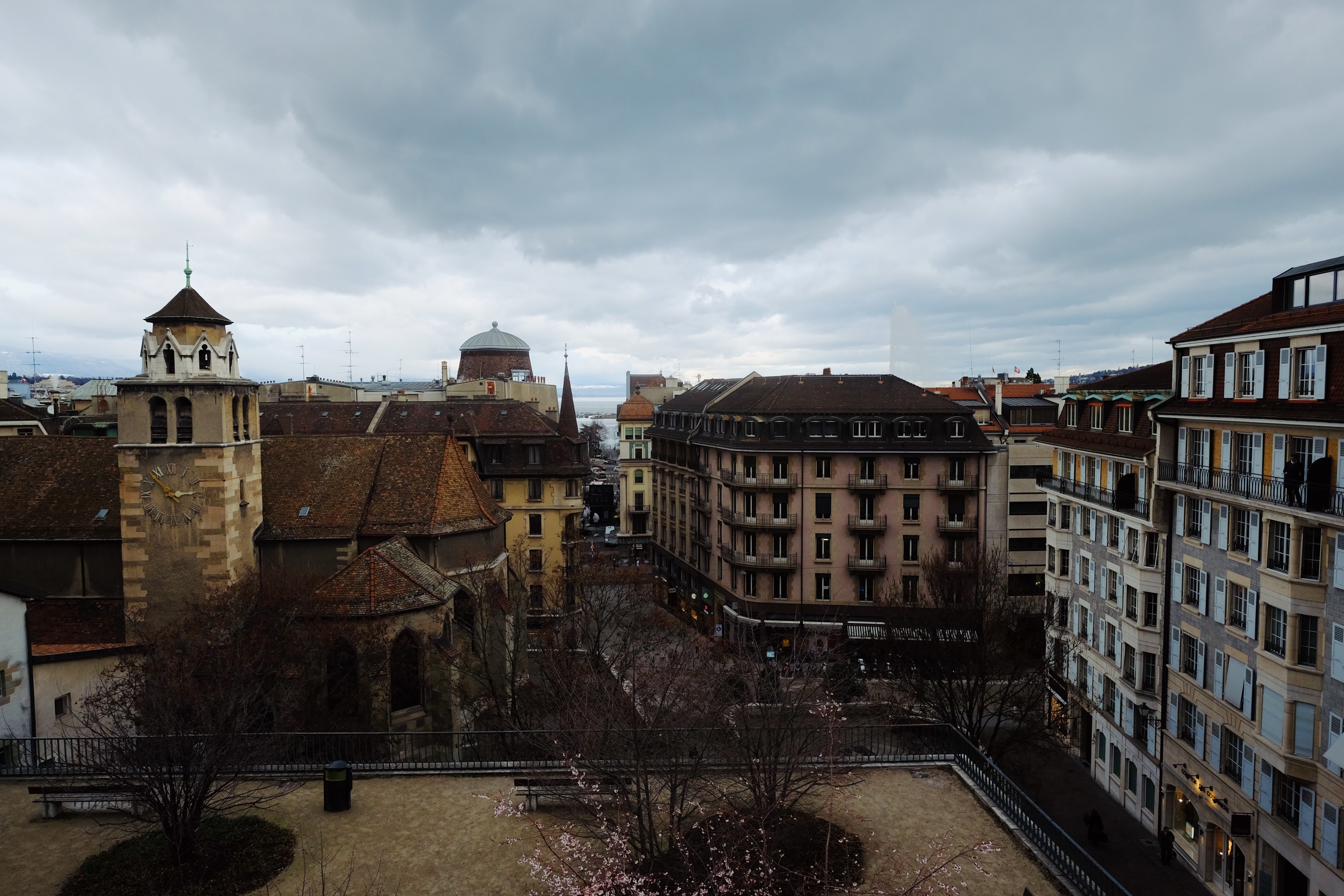
On Tuesday and Wednesday we visited the University of Geneva (UNIGE) for international student orientation. We learned the basics of Swiss history and politics. UNIGE is where we will be taking classes once the European semester begins in mid February. We’re taking French classes until then to prepare.
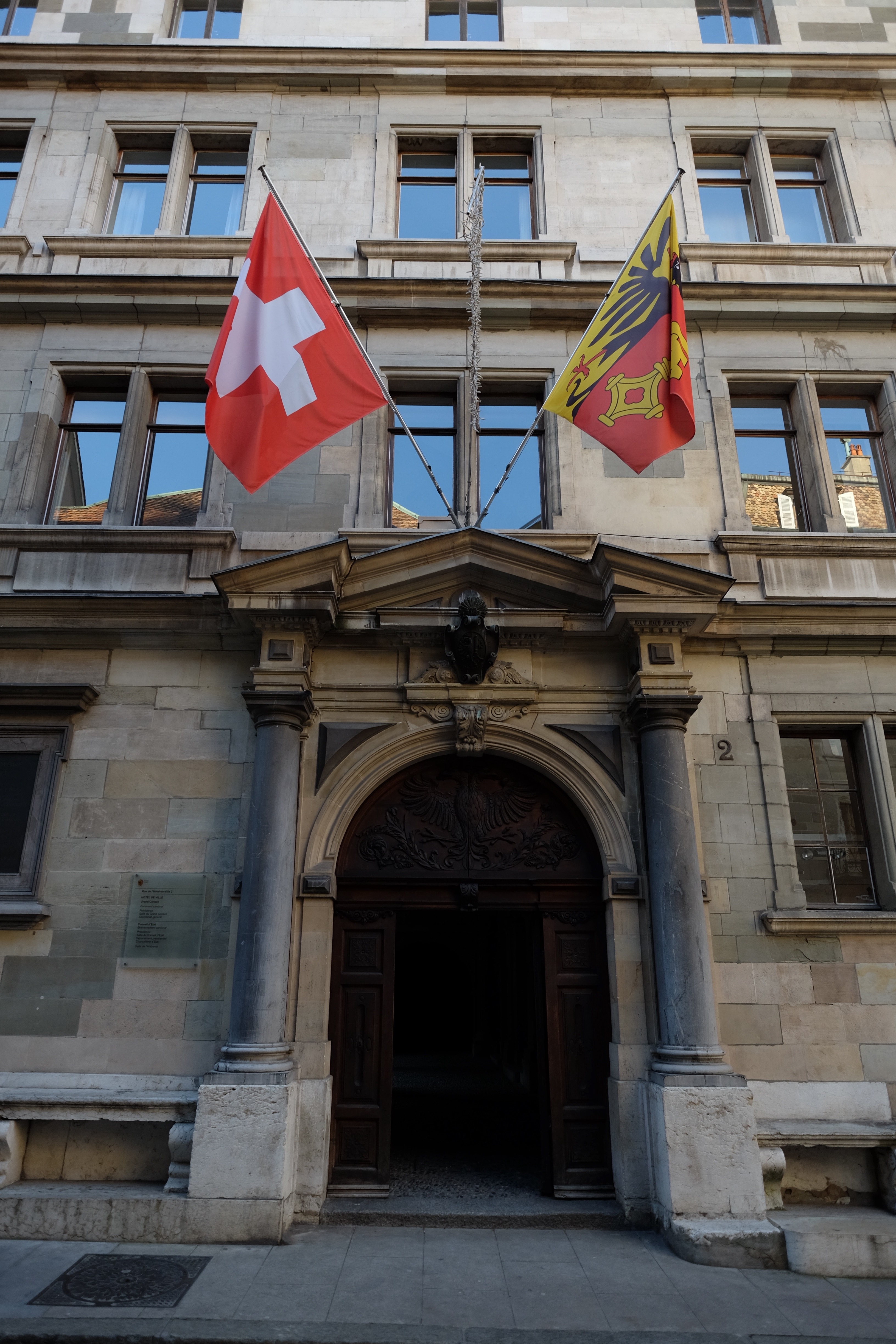

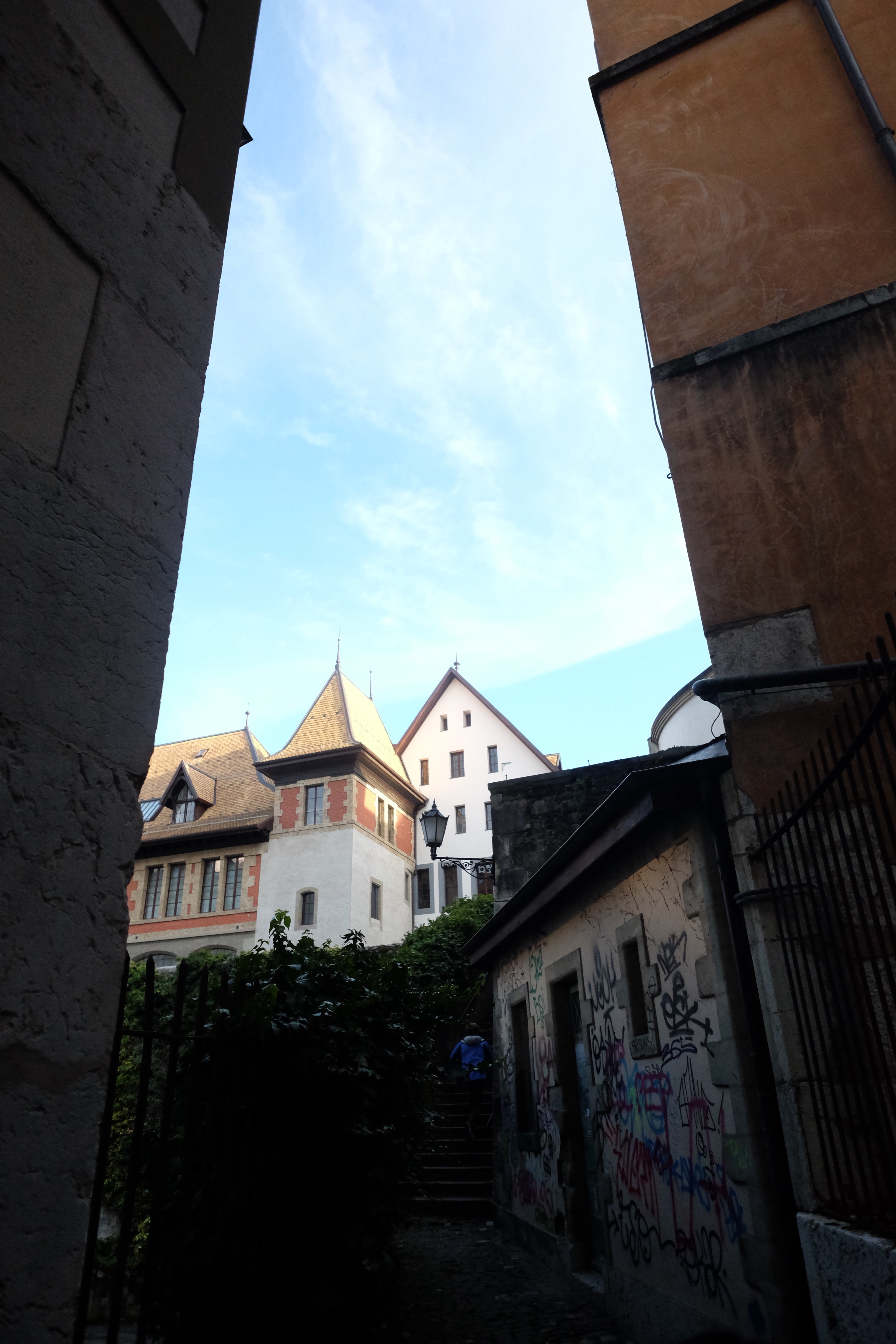
The most exciting part so far has been going to CERN. CERN stands for the Conseil Européen pour la Recherche Nucléaire, or the European center for nuclear research. But they do way more than just particle physics, and it’s more of a world wide collaboration than just Europeans. If you’re interested in learning more about CERN, the website is rich in information on everything that goes on there.
I didn’t know this beforehand, but the 17 of us pictured below are the only undergraduates who have the opportunity to work at CERN, apart from the summer interns who are here only for 12 weeks. They made us feel really special. Once we had gotten our access cards, we joked that we’ve peaked and, unfortunately, it’s all down hill from here…
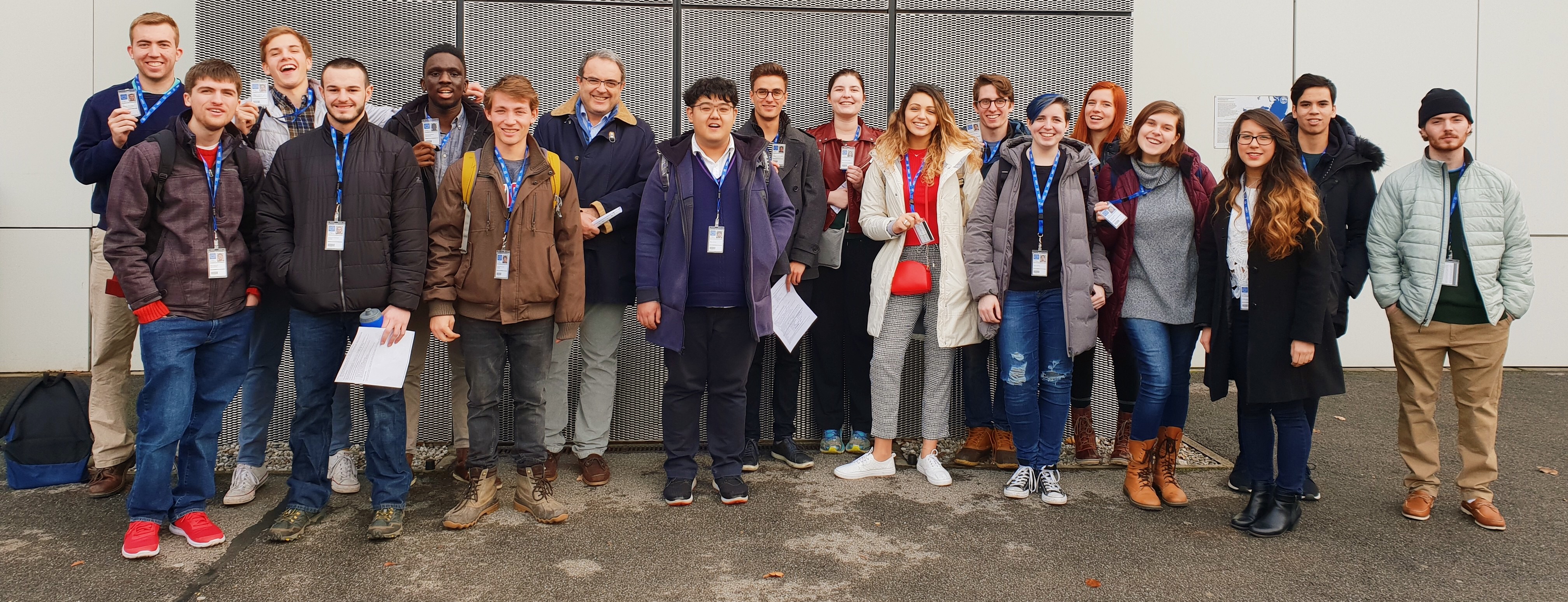
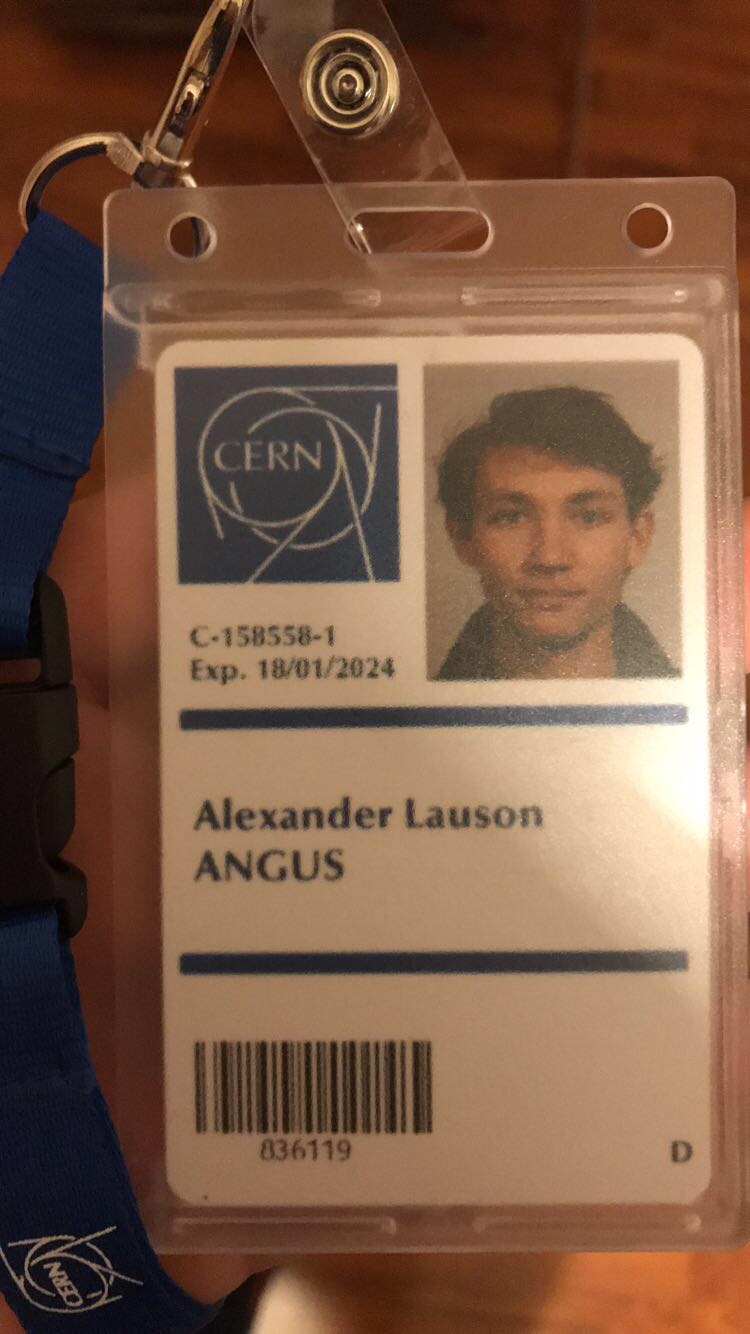
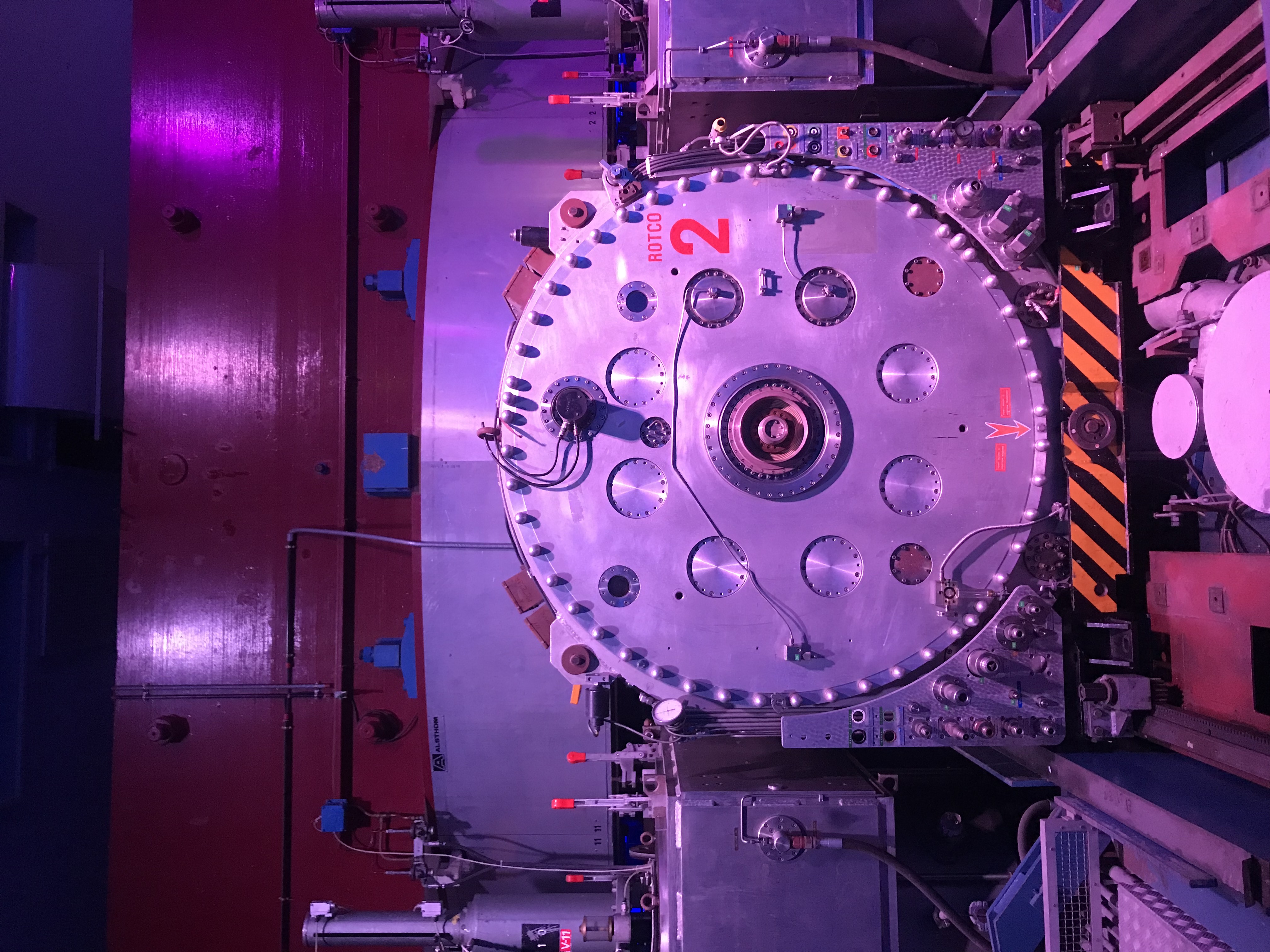
This is the first accelerator at CERN, called the synchrocyclotron. It looks and sounds like something a super villain would use to take over the world, but luckily it was only used for good. This machine helped prove the existence of the pion.
The team I will be working with for the next several months is responsible for maintaining, updating, and tuning the radiofrequency cavities (RF cavities: the part that actually accelerates the particles) of the Super Proton Synchrotron (SPS in the diagram below). Right now, CERN is experiencing a planned technical shutdown called LS2 (Long Shutdown 2) that will last until 2021. During this shutdown the RF cavities will be removed and measurements will be made that target tuning issues as well as the testing of newly developed damping schemes. The updated cavities will then be reassembled and installed into the SPS.
More on RF cavities
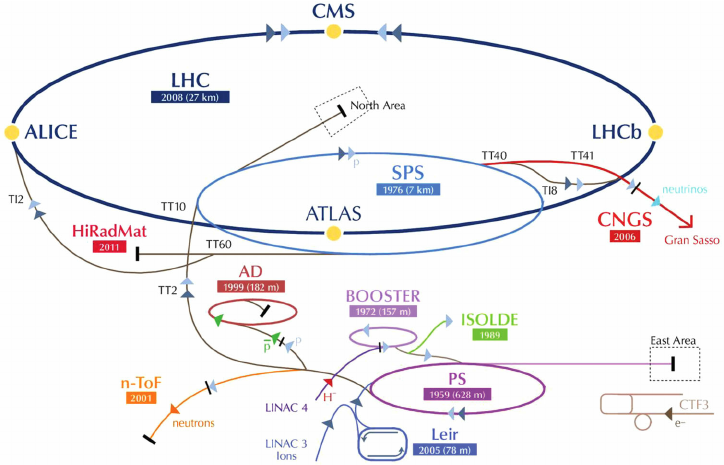
It’s very exciting, and I know that for me it still has not all soaked in. To the right is a video of Michael jumping for joy. Everyone felt this way, but Michael expressed it better than all of us.

It has been an outstanding start in Geneva, and I’m looking forward to more French, classes this week on computation for experimental methods, and a trip to Gruyères this Saturday.

SUBSCRIBE FOR UPDATES
Enter your email address to receive email updates about new content.
Email AddressDeparture for SwitzerlandJanuary 13, 2019See you in July!
Copyright © 2019 Alex Angus — Mins WordPress theme by GoDaddySkip to toolbar
- Search
- Howdy, admin
